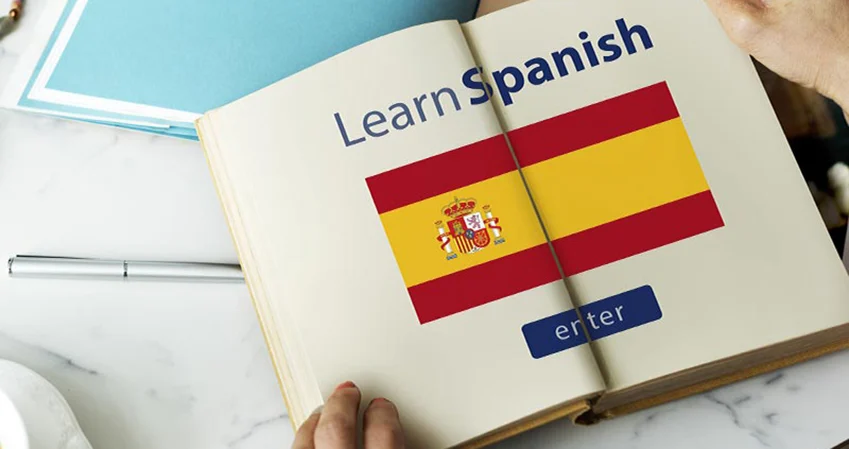Spanish Language from Scratch
Learning a new language opens up new opportunities. One of the most popular directions today is Spanish. Studying it in Spain opens up many horizons. The sunny country offers various educational paths that may later lead to internships or high-paying jobs. While it’s possible to study Spanish at home, full immersion is a better option. You’ll not only learn the language but also dive into the culture and unique traits of the country. If you’re someone who takes your career seriously and wants to learn Spanish in Spain and work for an international company, this article is for you.
 When selecting a school, pay attention to its ranking and credentials. Sometimes prospective students choose a school based solely on low prices and risk ending up in a low-rated institution, which can affect both the learning process and adaptation. First and foremost, check for accreditation and licensing. If the school doesn’t have it, it likely doesn’t meet the established standards. Look for reviews and feedback—preferably from third-party sources rather than the school's own website. For convenience, consider the school’s location. If it’s far from your home, getting there might be difficult, especially at first, when you're still getting used to the city.
Spanish language schools in Spain for beginners include:
When selecting a school, pay attention to its ranking and credentials. Sometimes prospective students choose a school based solely on low prices and risk ending up in a low-rated institution, which can affect both the learning process and adaptation. First and foremost, check for accreditation and licensing. If the school doesn’t have it, it likely doesn’t meet the established standards. Look for reviews and feedback—preferably from third-party sources rather than the school's own website. For convenience, consider the school’s location. If it’s far from your home, getting there might be difficult, especially at first, when you're still getting used to the city.
Spanish language schools in Spain for beginners include:
 Language schools in Spain offer a wide variety of Spanish courses, so each student can find a program that fits their needs. Spanish courses in Spain enable fast and effective language acquisition due to their high intensity. Students are immersed in a language environment and quickly adapt to speaking Spanish. Standard courses are suitable for those who prefer a more moderate learning pace. These allow time to study and explore Spanish culture and attractions. Specialized courses are tailored to specific goals—such as improving conversational skills, preparing for exams, or learning specialized aspects of the language. These programs offer in-depth language knowledge and unique cultural experiences in a beautiful and culturally rich country.
Language schools in Spain offer a wide variety of Spanish courses, so each student can find a program that fits their needs. Spanish courses in Spain enable fast and effective language acquisition due to their high intensity. Students are immersed in a language environment and quickly adapt to speaking Spanish. Standard courses are suitable for those who prefer a more moderate learning pace. These allow time to study and explore Spanish culture and attractions. Specialized courses are tailored to specific goals—such as improving conversational skills, preparing for exams, or learning specialized aspects of the language. These programs offer in-depth language knowledge and unique cultural experiences in a beautiful and culturally rich country.
 Studying Spanish in Spain offers numerous benefits. Immersed in a native-speaking environment, you’ll learn the language faster and improve your communication skills significantly. In addition, cultural exchange with locals helps you understand another culture while developing both personal and professional skills. New friendships and opportunities await those who choose to study at a language school in Spain.
Studying Spanish in Spain offers numerous benefits. Immersed in a native-speaking environment, you’ll learn the language faster and improve your communication skills significantly. In addition, cultural exchange with locals helps you understand another culture while developing both personal and professional skills. New friendships and opportunities await those who choose to study at a language school in Spain.
Go back to the blog
Can You Go to Spain to Learn Spanish Without Knowing the Language?
If you're worried about moving to Spain because you don’t speak the language, consider attending language courses. Many schools offer various study options for international students. During your studies, you’ll significantly improve your Spanish through communication with locals, gain valuable connections and friends, and explore a new country. If you plan to enter a university in Spain, attending language courses will help you prepare. Language schools in Spain not only offer Spanish lessons but also provide strong support to help students adapt and settle into their new environment. One of the main advantages is assistance in your native language—Russian, English, French, and others—which makes the learning process more comfortable and accessible for everyone. Based on your language course enrollment, you may be eligible for a residence permit in Spain for up to one year. Schools also offer cultural and practical orientation sessions to help students integrate into local life and avoid misunderstandings related to unfamiliar customs.Choosing a Language School
 When selecting a school, pay attention to its ranking and credentials. Sometimes prospective students choose a school based solely on low prices and risk ending up in a low-rated institution, which can affect both the learning process and adaptation. First and foremost, check for accreditation and licensing. If the school doesn’t have it, it likely doesn’t meet the established standards. Look for reviews and feedback—preferably from third-party sources rather than the school's own website. For convenience, consider the school’s location. If it’s far from your home, getting there might be difficult, especially at first, when you're still getting used to the city.
Spanish language schools in Spain for beginners include:
When selecting a school, pay attention to its ranking and credentials. Sometimes prospective students choose a school based solely on low prices and risk ending up in a low-rated institution, which can affect both the learning process and adaptation. First and foremost, check for accreditation and licensing. If the school doesn’t have it, it likely doesn’t meet the established standards. Look for reviews and feedback—preferably from third-party sources rather than the school's own website. For convenience, consider the school’s location. If it’s far from your home, getting there might be difficult, especially at first, when you're still getting used to the city.
Spanish language schools in Spain for beginners include:
- Universidad de Barcelona (Estudios Hispánicos) – Offers intensive one-year courses with both group and individual classes.
- Enforex – Provides specialized programs, such as a one-week pronunciation course to improve your spoken Spanish.
- Don Quijote – Located in a central but quiet area. At the end of the course, students take a language proficiency test.
- Instituto Cervantes Accredited Schools – A network of top-tier language schools offering various courses based on language level. Licensed teachers are native speakers.
- Pylmon Languages – Specializes in Spanish courses for foreigners and prepares students for the DELE exam over the course of a year.
Types of Spanish Courses
 Language schools in Spain offer a wide variety of Spanish courses, so each student can find a program that fits their needs. Spanish courses in Spain enable fast and effective language acquisition due to their high intensity. Students are immersed in a language environment and quickly adapt to speaking Spanish. Standard courses are suitable for those who prefer a more moderate learning pace. These allow time to study and explore Spanish culture and attractions. Specialized courses are tailored to specific goals—such as improving conversational skills, preparing for exams, or learning specialized aspects of the language. These programs offer in-depth language knowledge and unique cultural experiences in a beautiful and culturally rich country.
Language schools in Spain offer a wide variety of Spanish courses, so each student can find a program that fits their needs. Spanish courses in Spain enable fast and effective language acquisition due to their high intensity. Students are immersed in a language environment and quickly adapt to speaking Spanish. Standard courses are suitable for those who prefer a more moderate learning pace. These allow time to study and explore Spanish culture and attractions. Specialized courses are tailored to specific goals—such as improving conversational skills, preparing for exams, or learning specialized aspects of the language. These programs offer in-depth language knowledge and unique cultural experiences in a beautiful and culturally rich country.
Application Process and Documentation
Language courses in Spain are fee-based and may have entry requirements, especially for non-beginners. Consider factors such as your future place of residence, the cost, and the program content. Applications are submitted online via the school’s website. To obtain a student visa, you will need the following documents:- Passport
- Course enrollment confirmation
- Bank statement (proof of financial means)
- Medical certificate and insurance
Housing and Adaptation in Spain
Studying Spanish from scratch will be easier if you secure housing in advance. There are different accommodation options. The most affordable is a student dormitory, costing around €250/month. You’ll likely share a room with others, but it saves money. For a cultural immersion, consider living with a host family. This costs about €400/month and typically includes a private room. However, there’s a chance of personality mismatches with host family members. The most expensive option is renting a private apartment, which can cost €500–600/month in a small city. While convenient, not everyone can afford it. To cut costs, consider sharing the apartment with a friend or relative. To adapt faster, spend time exploring the city and getting to know your surroundings. Learn about Spanish culture—these insights will help you feel more confident. In language courses, you’ll meet others—this is a chance to practice and make new friends.Cultural and Social Aspects
Spain is rich in cultural heritage and traditions. Immersing yourself in this unique environment is key to learning Spanish. By attending events, visiting museums, and joining excursions, you’ll expand your worldview and enhance your language acquisition. Beyond culture, social connections are vital for language learning. Join language clubs, volunteer programs, or sports groups. These not only improve your Spanish but also open new social opportunities and meaningful exchanges with native speakers.Advantages of Studying Spanish in Spain
 Studying Spanish in Spain offers numerous benefits. Immersed in a native-speaking environment, you’ll learn the language faster and improve your communication skills significantly. In addition, cultural exchange with locals helps you understand another culture while developing both personal and professional skills. New friendships and opportunities await those who choose to study at a language school in Spain.
Studying Spanish in Spain offers numerous benefits. Immersed in a native-speaking environment, you’ll learn the language faster and improve your communication skills significantly. In addition, cultural exchange with locals helps you understand another culture while developing both personal and professional skills. New friendships and opportunities await those who choose to study at a language school in Spain.


 11/05/2025
11/05/2025  Reading time: 5 min
Reading time: 5 min 



